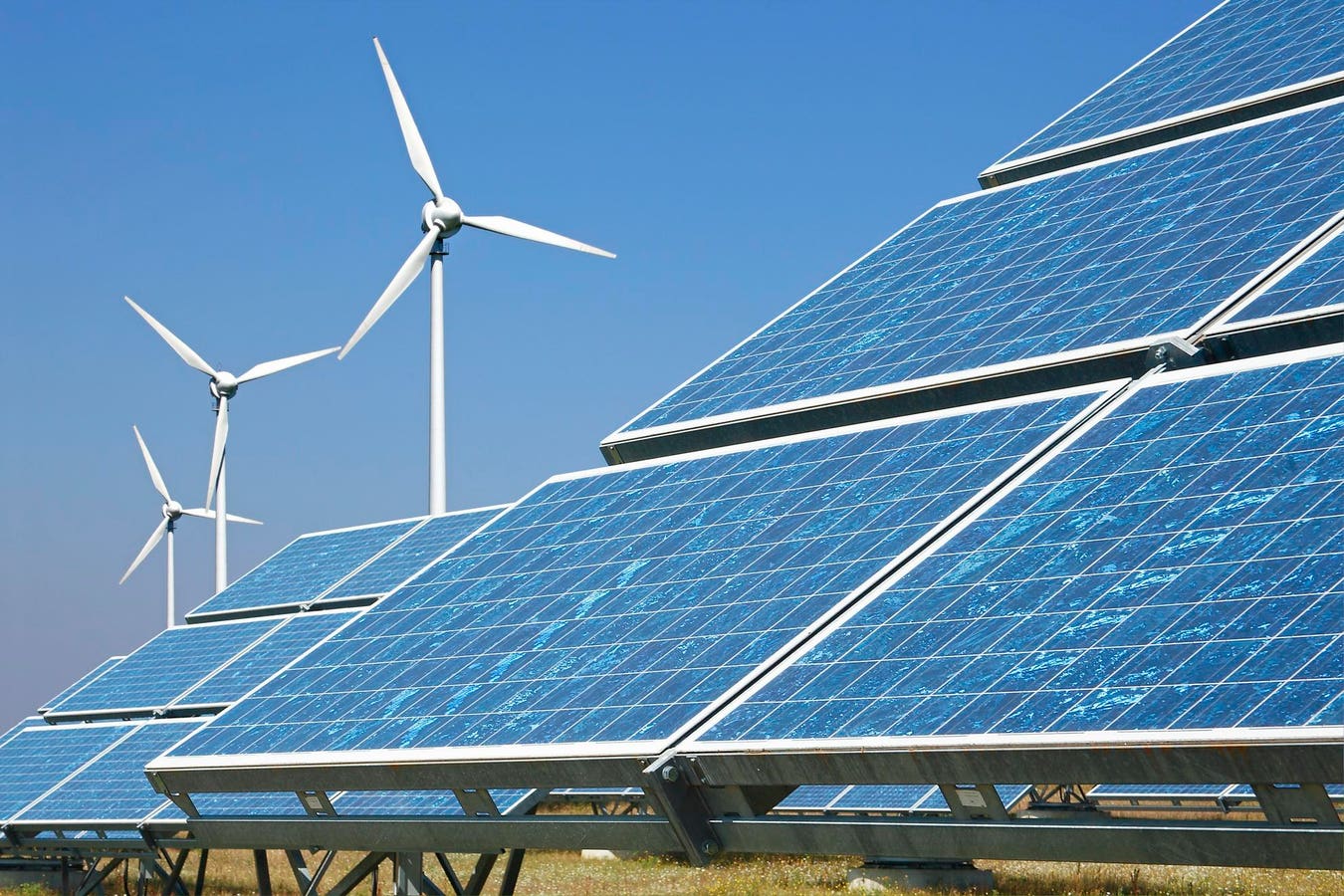This week’s Current Climate, which every Saturday brings you the latest news about the business of sustainability. Sign up to get it in your inbox every week.
What’s the best way to get the United States to meet its climate goals? Build on the already existing momentum towards clean energy. That, at least, is the conclusion of a new report from the Union of Concerned Scientists, which argues that if policymakers help to accelerate the transition away from fossil fuels, the country can not only hit its emissions targets, it would reap economic benefits, too. Those benefits include a $100 billion reduction in consumer energy costs by the end of the decade, as well as avoiding over $1 trillion in economic damages caused by natural disasters by 2050.
“We’re not saying it’ll be easy, but we know that a cleaner and more just energy future is within our reach,” Steve Clemmer, one of the reports’ authors, said in a press release. “The solutions are clear: Transitioning equitably to clean energy, increasing efficiency, and electrifying our cars and homes will not only save us money but will also improve our health and limit the worst impacts of climate change.”
The Big Read
Petrochemicals Magnate Prajogo Pangestu’s Windfall From Betting On Geothermal Energy Makes Him Indonesia’s Richest Billionaire
Petrochemicals and energy billionaire Prajogo Pangestu, 79, has become the richest person in Indonesia with his net worth zooming to over $40 billion. The bulk of Pangestu’s windfall is contributed by the skyrocketing value of his stake in geothermal energy producer Barito Renewables Energy, which listed on the Indonesian stock exchange last month. Shares of the company have risen five-fold since, with a 25% jump recorded on a single day last week.
Read more here.
Sustainability Deals Of The Week
Mining: ExxonMobil announced that it will begin mining for lithium in Arkansas, and that it aims to become a major lithium producer for electric vehicles by 2030
Solar Power: Nevados, which builds solar “trackers” that enable panels to be installed on hilly terrain without flattening it, has begun manufacturing at a facility in Texas.
Carbon Removal: Montreal-based startup Deep Sky announced that it’s raised a $55 million series A round to begin the planning and construction of its first commercial facility.
Biomass: Breakthrough Energy Ventures-backed startup Graphyte announced its own carbon removal solution, which transforms waste biomass into a carbon removal product at a price of less than $100 per ton.
The Big Transportation Story
Toyota Signs On As First Carmaker To Buy Battery Components From Redwood Materials
Redwood Materials, the battery recycling and components maker created by Tesla cofounder JB Straubel, is going supply Toyota with anode and cathode materials to make new batteries at a massive $14 billion U.S. plant the carmaker is building, the startup’s first such deal with an automaker. The deal deepens Redwood’s relationship with the world’s largest automaker, following a battery pack recycling project begun last year.
Read more here.
Other Sustainability News
A new report from the United Nations found that even if most countries follow their climate plans under the Paris Agreement, it won’t be enough to achieve its targets.
Another new report warns that a global temperature increase of just 2 degrees Celsius this century will cause irreversible harm to ice sheets, glaciers, snow, sea ice and permafrost, and accelerate sea level rise.
Cadillac has announced an electric compact SUV model, which it’s dubbed the Optiq.
Startup Elroy Air, announced the first flight of what it says is the world’s first autonomous turbogenerator- hybrid electric vertical takeoff and landing aircraft.
The Federal Government released the Fifth National Climate Assessment this week, which finds that the country’s carbon emissions continue to decline since peaking in 2007.
What Else We’re Reading This Week
Tesla Business Grinds to a Halt Where Unions Still Hold Sway (Bloomberg)
GM reorganizes BrightDrop EV unit, business head leaving (Reuters)
A 125-Year-Old European Carmaker Starts Over to Democratize EVs (Bloomberg)
Do Biomaterials Break Down In Natural Environments? It Depends. (5 Gyres)
For More Sustainability Coverage, Click Here.
Read the full article here





